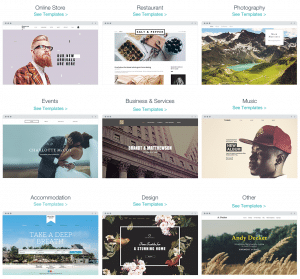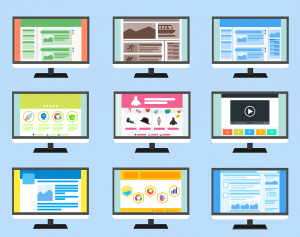Thinking about starting a business? This complete step-by-step guide will show you exactly what to do to be successful. Whether you’re looking to earn extra money, start a side hustle, build and sell a new product, or quit your job to work for yourself full-time, follow these steps to create a profitable business.
Bookmark this page for quick reference.
Starting a business is an exciting process. Don’t get scared by reports that say that most small businesses fail within their first 5 years. There are all sorts of reasons, including lack of commitment or knowing what to do. I’m here to tell you that you can do it, even if starting a small business seems daunting at first.
Use this guide as your checklist of things to do as you begin your journey. You can go in the order shown or skip to the section you need right now.
Have fun starting a business!
I started my first business from my kitchen table over 25 years ago. Since then, I’ve built and sold several multi-million dollar companies. In this startup guide, I include the tips, templates, and tools that I use and recommend to help you succeed.

You can do this!
Raj Khera
Publisher, MoreBusiness.com
Table of Contents
Step 1: Picking a Business Idea
The first step in starting a business is to decide exactly what you plan to sell. It can be your own products, other companies’ products, or your services – or any combination of these.
You can start part-time or go all in full-time. Take a look at these business ideas to find the right opportunity for you:
- Over 60 Part-Time Business Ideas – includes skills required, expenses, and expected sales
- 5 Types of Business Opportunities – franchising, distribution, network marketing and more
- 8 Work From Home Business Ideas – flexible work schedule, part-time or full-time options
- White Label Business Opportunities – resell other people’s products under your brand
Step 2: Writing a Business Plan
One of the most overlooked first steps in starting a business is planning. The business planning process gets you to think about how you will build your company, find customers, and finance your growth.
If you plan to get outside funding to start or grow your company, your bank or investors want to see a good business plan before putting their money in.
Your business plan should include these sections:
- Executive Summary
- Products and Services
- Key Personnel
- Operations
- Marketing and Customer Acquisition
- Financing and Use of Funds
- Growth Projections, including Assumptions
MoreBusiness.com’s business planning resources include writing guides and numerous free sample business plans that you can download and edit to create your own.
See our free business plan templates to get started
Step 3: Choosing a Business Structure
Should you incorporate, set up a limited liability company (LLC), or work as a sole proprietor? This is an important question because each option has different tax consequences and liability.
See our detailed article on the pros and cons for each type of company to choose the right one for your situation. Then, get the forms you need to file online and avoid hefty lawyer fees.
Sole Proprietor
- Easiest to start
- Minimal paperwork
- Use your social security number for taxes
- Increased liability to your personal assets
LLC
- Very popular for startups
- Simple paperwork
- Company gets its own tax identification number
- Increased protection of your personal assets
 Corporation
Corporation
- Preferred by investors
- More paperwork
- Company gets its own tax identification number
- Increased protection for your personal assets
Registering and Protecting Your Name
By filing your paperwork, you are registering your company name with your state.
If your business name is unique and you want to prevent others from using it, file a trademark with the U.S. Patent Office. They have many video tutorials to guide you. You can protect your company name, product name, and even designs, such as a unique logo.
Which Structure Is Right For You?
Limited Liability Companies (LLC) are the most popular form for companies that aren’t seeking venture capital or other equity investment because of their reduced paperwork and filing requirements.
Sole proprietorships are not as popular because if your company gets sued, your personal assets are at risk. You don’t want to lose your house because of your business!
Corporations require more documentation, including board meetings and other paperwork. There are different types of corporations, General and Close, and you can make two types of tax elections, C and S.
Read the advantages and disadvantages: Different Types of Corporations
Step 4: Getting an Employer Identification Number and Sales Tax Licenses
Once you register your business, you will need to get an Employer Identification Number, or EIN, which is used for tax purposes.
If you have employees in other states, you will also need to register with those states to file appropriate payroll taxes.
If you sell physical products, you will also need a sales tax number for every state in which you have a physical presence.
Some states require you to pay sales tax on services or digital products. Check with your state’s business licensing department to make sure you comply with all tax laws.
Apply Online
- Federal registration: Submit the IRS EIN Request Form
- For state registration, follow these steps:
- Google “your state sales and use tax license”
- Do the same for “your state employer withholding”
- Search for the links to register your business appropriately
- For regular sales tax filings, use a service like TaxJar to automate calculations and filings for your state
Step 5: Registering a Domain Name
When starting a business, you don’t have to wait to register your domain name. You can do this even before you form your company. Domain registration is very easy and inexpensive, with most domains available for under $20.
You might already have an idea of what to call your new business. If not, that’s okay – domain registration is so inexpensive that most small businesses grab a few domains and decide which one(s) to use later.
Register your domain name today so that nobody else takes it. If the name you want has been taken, look at the many new global top level domains (known as gtlds) that you can use.
For example, instead of myname.com, you might find that myname.expert, myname.company, myname.gallery or even myname.xyz are available for registration. The longer you wait to register your domain, the greater the chance that someone will get it first.
Don’t take a risk – grab your domain name and then work on your company afterwards.
Find a Domain Name
You can get your domain name even before setting up your company.
Find a Domain
Step 6: Setting Up Your Website
With your domain name in hand, you can create your online presence – or create your site and then assign your domain to it later.
Your website will be the first impression most prospects will have of your company. This can be a major advantage for you because an attractive website can make your company look larger and more established. A small business website will also help you grow beyond word of mouth.
Creating an attractive website is easy using pre-made templates
I’ve evaluated numerous options for creating and hosting a website and have narrowed down two recommendations based on how comfortable you are learning new software.

Option 1: No Technology Experience
If you’re not comfortable with technology, you can use a tool like Wix, which is our pick for the easiest website creation tool.
Through a simple, point and click interface, you can create beautiful websites to sell products, showcase your services, and even order pizza! Their templates include sample content so you can be up and running in a few minutes.
Try Wix free – click on any image below to pick a template for your business.
Another excellent option is WordPress.
Option 2: Some Technology Experience
For more sophisticated website features, use WordPress. This is what we use for MoreBusiness.com and our other sites. While it takes a little more time and effort to set up, there are numerous integrations with other services. Over 65% of all websites run on WordPress and there are many online support forums to any questions you may have.
WordPress is actually pretty easy once you get used to it, but it’s not as simple as Wix. You need to pick a template (there are thousands at Template Monster) and hosting. We use Cloudways for our hosting several of our own sites – we selected it after evaluating many hosting services. Their 24/7 support is outstanding.

Compare Website Options
If you’re not sure which option to pick, see our comparison guide in which we show you the pros and cons of each option, including video demos, so you can see which solution is the best fit for you in starting a business.
Important Website Design Tips
- 5 Website Elements – This Is What Makes a Great Website
- Where to Get Free Stock Photos
- How to Write an About Us Page That Generates Leads From…
- 5 Website Conversion Optimization Tips That Increase Online Sales
- 5 Website Design Fails: Why Your Site Isn’t Generating Leads
- Website Usability: How to Make Your Website User-Friendly
- Free Website Audit – See What Is Affecting Your Search Engine…
Pick a Website Design From Hundreds of Templates
Creating your website is easy using templates. Our favorite tool for beginners is Wix. It’s fast and powerful and takes about 15 minutes from start to finish. Try it free.
Step 7: Financing Your Business
Depending on your business goals, you might need to get outside financing to get started or grow to the next level.
There are many different types of funding to consider when you are starting a business. These include:
- Grants
- Credit cards
- Bank loans
- Line of credit
- Friends and family loans
- Factoring (receivables financing)
- Vendor financing
- Angel funding
- Venture capital
Download our free financing eBook to learn the pros and cons of the financing options you can use to start your business.
Step 8: Marketing Your Products and Services
The heart of starting a business is getting customers to buy your products and services.
MoreBusiness.com provides you with a wealth of marketing ideas and templates to generate sales.
For starters, download some of our most popular free marketing templates that lay out exactly what to do:
- Marketing Plan Example – download a free sample marketing plan that you can edit
- Goal-Driven Social Media Marketing Plan – use this social media plan to create your own
- Inexpensive Marketing Ideas for Small Business – low budget marketing plan for startups
Get Marketing Help
Download our sample marketing plan and we’ll share useful marketing tips that you can implement quickly. You’ll learn many ways to earn extra income and be on your way to financial independence.
When you’re ready, consider our marketing coach services to help you get the training you need to grow your sales.
Starting a small business can be very empowering. Enjoy your journey!











